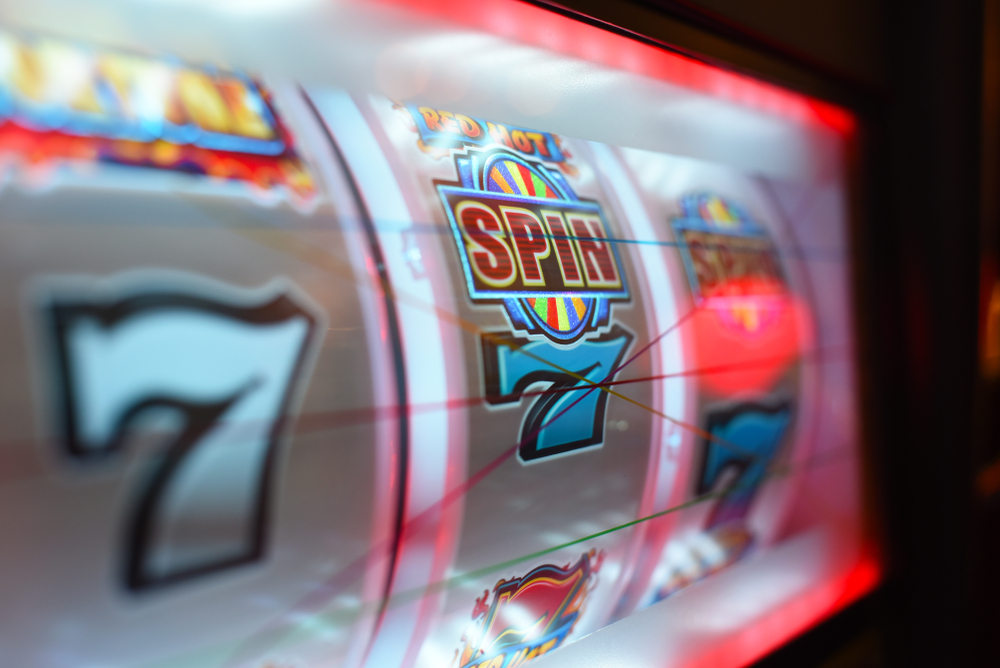
Pub-goers up and down the country enjoy a little flutter on the games machines from time to time, but an ongoing question remains; how do you win on slot machines? A common view is that slot machines are not truly random, and that the house always wins. We take a closer look into exactly how digital gaming machines work, and whether or not they are really random.
How do digital gaming machines work?
Once upon a time, slot machines worked on a pull system that generated motion in reels, making the end result random. Today, there is a computer chip inside the machine that provides the end result. The chip is embedded with a number generator, and it does not work on a cyclical basis – meaning the result is based on chance.
Are slot machines random or programmed?
The computer chip in each digital gaming machine is programmed with various metrics, which determine the odds of winning. The metrics impact on the ‘house edge’, the ‘home edge’, and payback percentage. Digital gaming machine manufacturers keep the metrics confidential however, so it is not possible to know what the odds are with any certainty.
What percentage do slot machines pay out?
Digital gaming machines are also programmed with a RTP, or Return to Player percentage. This is a mathematical instruction which dictates how much the machine will pay out to a winner, depending on the number of times it has been played. Most machines have a RTP of above 90%, meaning the winnings will be up to the value of 90% of the original stake (the game will return 90p of £1). This is only after a long period however, and does not mean all players will win this amount. Players should expect a pay out between nought and the RTP.
What are the different gaming machine categories?
In the UK there are seven different gaming machine categories;
| Type | Max Stake | Max Prize | Permitted location | No. of machines permitted |
| B1 | £5.00 | £100,000.00 | 2005 Act & 1968 Act Casinos | 20-150 depending on casino type |
| B2 | £2.00 | £500.00 | 2005 Act & 1968 Act Casinos Betting shops Tracks with pool betting |
20-150 depending on casino type |
| B3 | £2.00 | £500.00 | 2005 Act & 1968 Act Casinos Betting shops Tracks with pool betting Bingo premises Adult gaming centres |
4-150 depending on premises |
| B3A | £2.00 | £500.00 | Member’s Clubs & Miners’ Welfare Institutes | 1 per premises |
| B4 | £2.00 | £400.00 | 2005 Act & 1968 Act Casinos Betting shops Tracks with pool betting Bingo premises Adult gaming centres Member’s Clubs, Miners’ Welfare Institutes or Commercial Clubs |
3-150 depending on premises |
| C | £1.00 | £100.00 | 2005 Act & 1968 Act Casinos Betting shops Tracks with pool betting Bingo premises Adult gaming centres Member’s Clubs, Miners’ Welfare Institutes or Commercial Clubs Licenced FEC Pubs |
2-150 depending on premises |
Category D Gaming Machines
The most common gaming machine in the UK falls into category D. These are permitted in all of the above mentioned locations as well as travelling fairs and unlicensed family entertainment centres that have a permit. They have varying stake and prize combinations. All category D machines must display the RTP to users, unless they are ‘crane grab’ or ‘penny fall’ games.
What premises qualify for a gaming machine licence?
Premises with an alcohol licence automatically qualify for two category C or D gaming machines, after they have notified their local licensing authority of their intention to make such machines available to their customers. Additional machines can be added as long as the appropriate permits have been issued by the local licensing authority.
Discover more about Digital Gaming Machines, or to find out more about renting a machine – or other entertainment equipment – from TVC, contact us for a friendly conversation about how we can help.





Comments are closed.